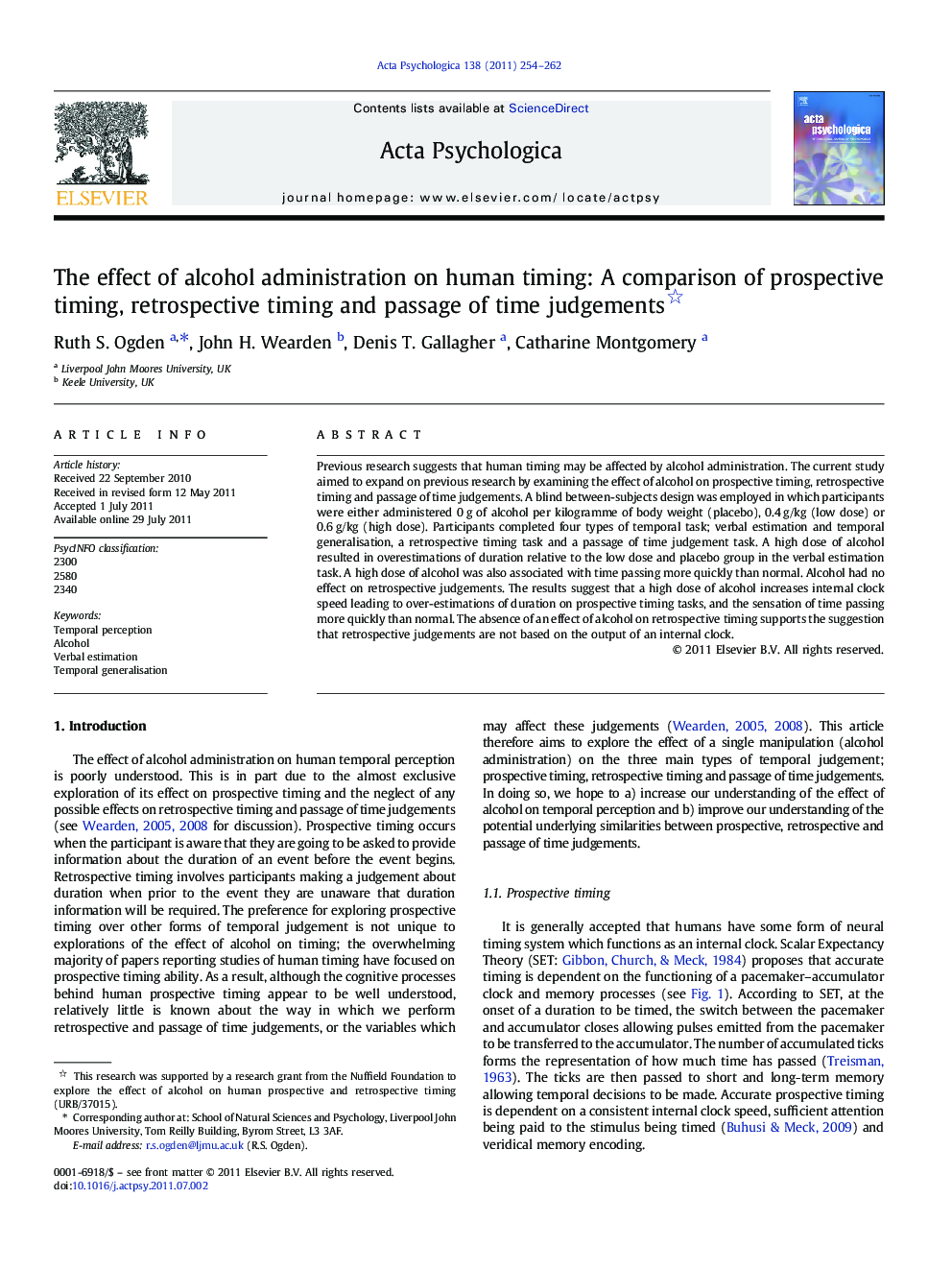| Article ID | Journal | Published Year | Pages | File Type |
|---|---|---|---|---|
| 920195 | Acta Psychologica | 2011 | 9 Pages |
Previous research suggests that human timing may be affected by alcohol administration. The current study aimed to expand on previous research by examining the effect of alcohol on prospective timing, retrospective timing and passage of time judgements. A blind between-subjects design was employed in which participants were either administered 0 g of alcohol per kilogramme of body weight (placebo), 0.4 g/kg (low dose) or 0.6 g/kg (high dose). Participants completed four types of temporal task; verbal estimation and temporal generalisation, a retrospective timing task and a passage of time judgement task. A high dose of alcohol resulted in overestimations of duration relative to the low dose and placebo group in the verbal estimation task. A high dose of alcohol was also associated with time passing more quickly than normal. Alcohol had no effect on retrospective judgements. The results suggest that a high dose of alcohol increases internal clock speed leading to over-estimations of duration on prospective timing tasks, and the sensation of time passing more quickly than normal. The absence of an effect of alcohol on retrospective timing supports the suggestion that retrospective judgements are not based on the output of an internal clock.
► Alcohol administration has no effect on retrospective timing. ► Alcohol administration makes time feel like it is passing more quickly than normal. ► Alcohol administration lengthens verbal estimates of duration. ► Retrospective timing does not appear to use the internal clock.
